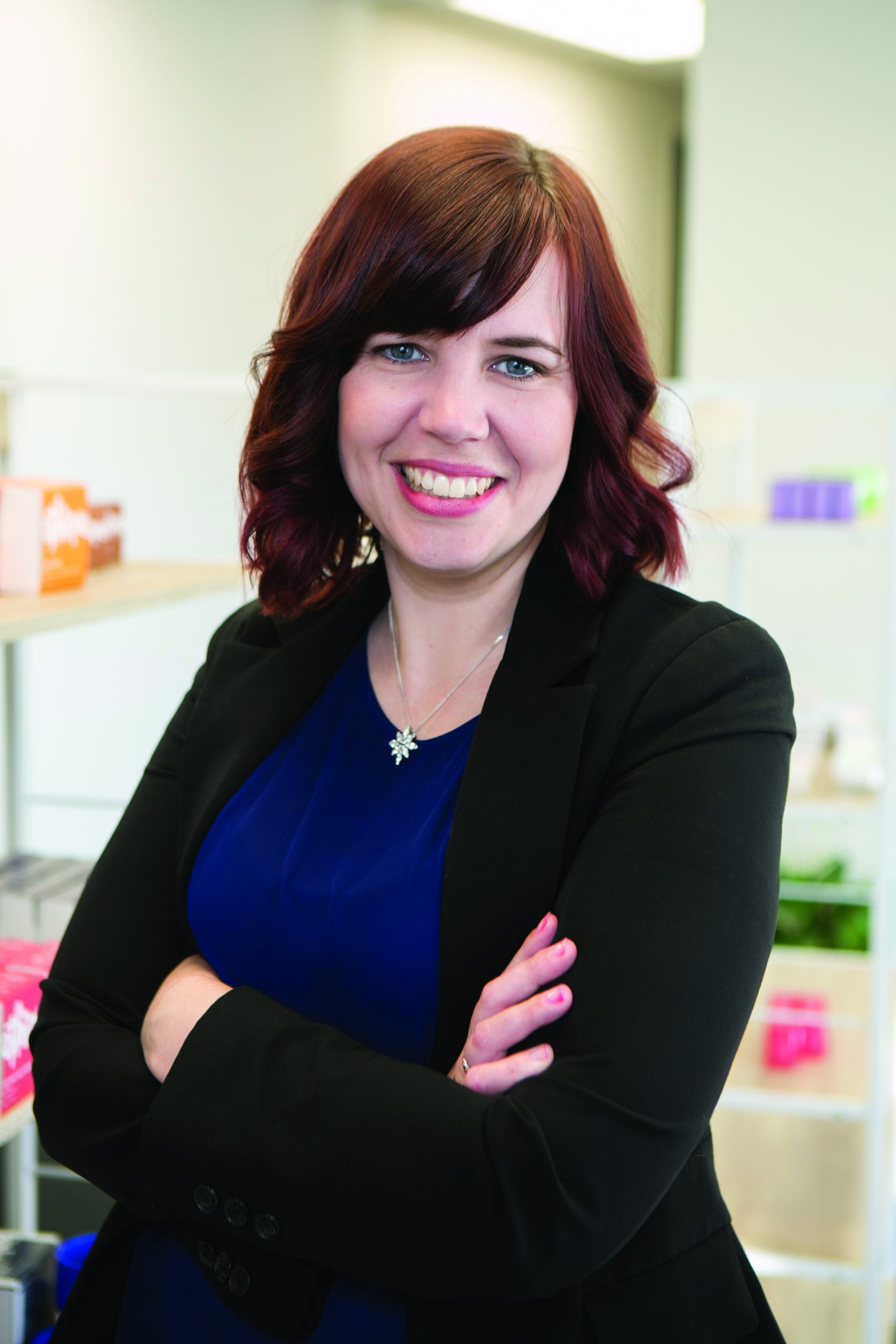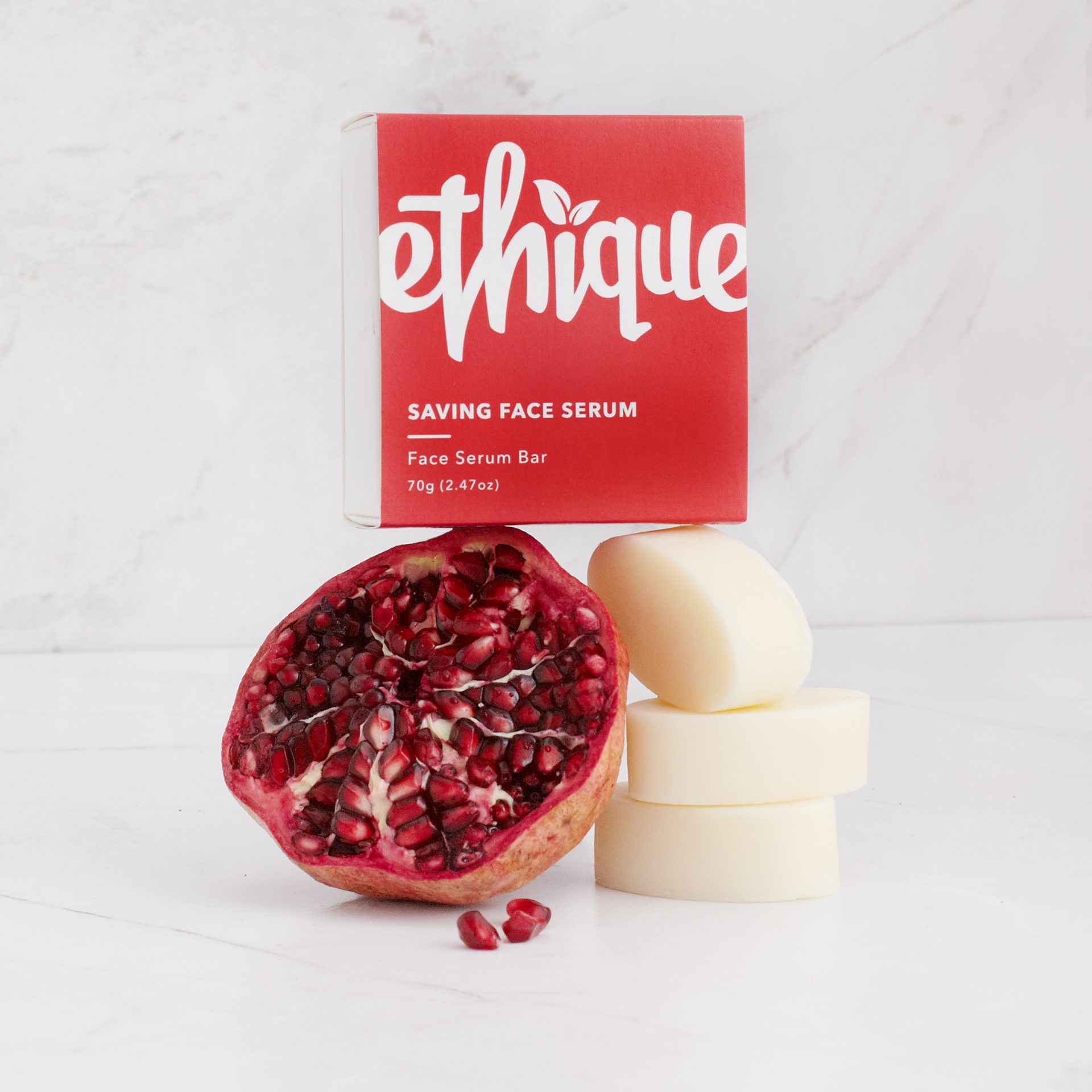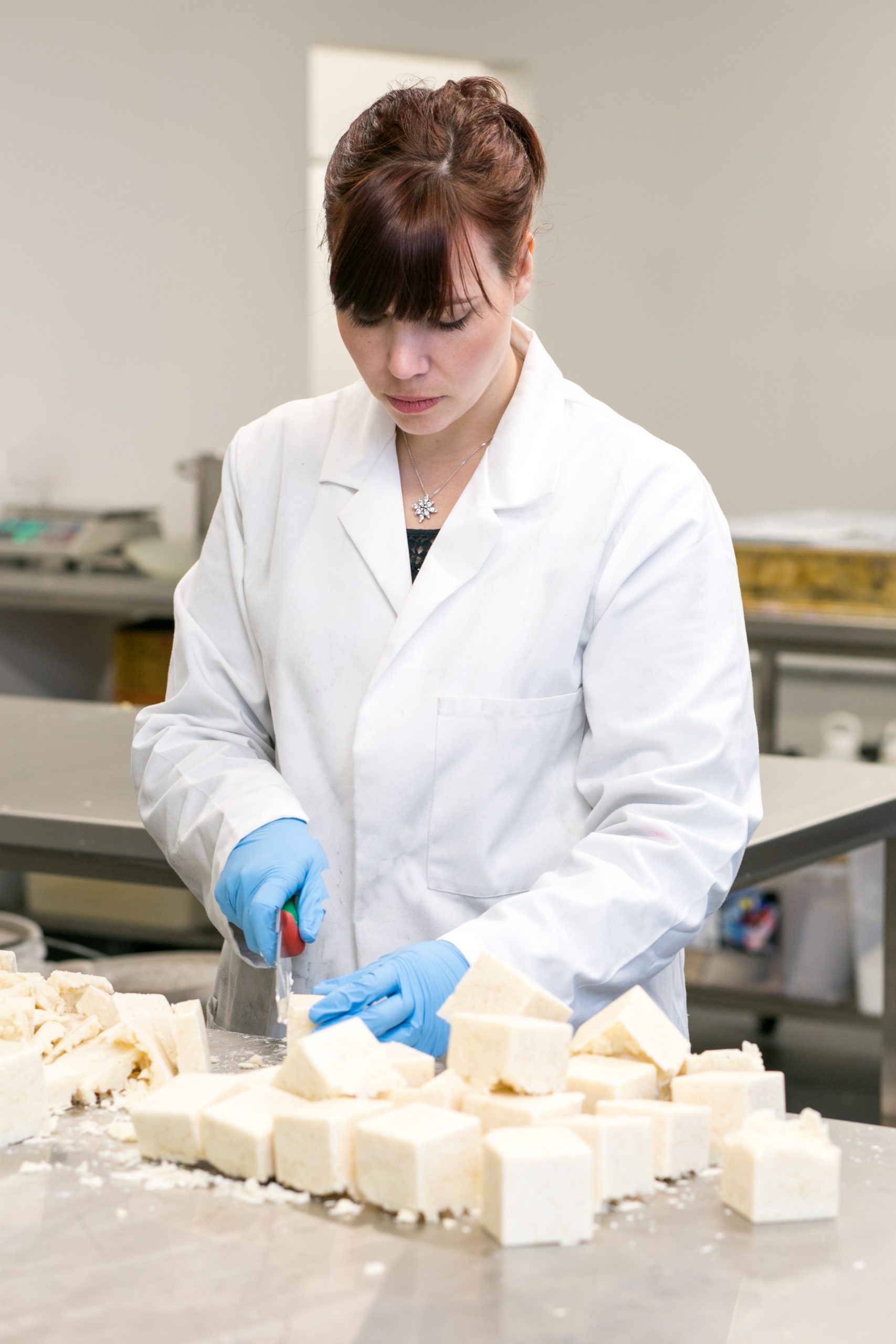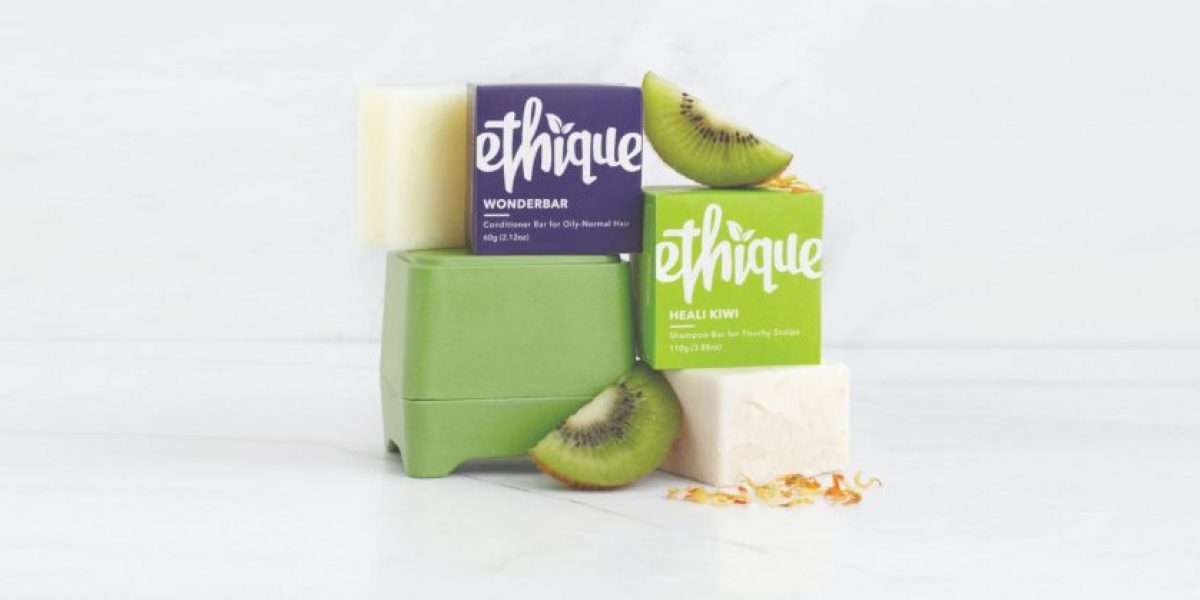Guilt-Free Beauty
UK-based charity, Green Alliance, predict that up to 12.2 million tonnes of plastic waste enters the ocean each year. A massive portion of that waste is packaging for food and beauty products.
Even though beauty is definitely in the eyes of the beholder, it also seems to cost a fair price, impacting the world in a massive way. It’s a scary realisation that national and international cosmetic brands are slowly coming to terms with.
A brand that has seriously been making a big difference for guilt-free beauty was started all the way back in 2012 at the University of Canterbury under the name Sorbet by Brianne West. In 2015, the company was rebranded as Ethique and has become iconic in promoting guilt-free products made from natural ingredients that are never animal-tested and are sold in biodegradable packagings.
Products by Ethique range from shampoo to face creams to conditioners, to pet wash, all with the promise of it not being at all detrimental to the environment. That is a must-do for anything Ethique produces. The environment is Brianne’s haven and passion, and she refuses to sit by and watch it change due to something her own brand can easily fix. And she does that, effortlessly.
As we talked to West about her journey as Ethique’s founder and CEO, her spirit and drive shone through brightly and we realized that that was the real beauty of Ethique. That, no matter what, beauty should always be a haven, yes, but also guilt-free.
Tell us what impact Ethique wants to make in the world.
Ethics.
I want Ethique to not only offer people a waste-free alternative to very commonly used products around the world, but also to encourage and inspire other businesses in all industries that it is possible to be ethical, sustainable and profitable, in every sense of the word. Our most common method of business is unsustainable, both from an environmental standpoint and a human one.
Our business operates in a way which does as little harm as possible to people, the planet and all its inhabitants. That’s a lot to say in one sentence, but to be a truly trustworthy and ethical company, you must consider everything as much as possible.
The products are also high quality, vegan and cruelty free, palm oil free, plastic free and 100% biodegradable with 100% compostable packaging.
Our ethos goes beyond beauty: we believe in environmental stewardship, transparent trade, cruelty-free practices and charity involvement. Every business should think of its entire supply chain, its team and should be responsible for the entire life cycle of its products – including the wasted packaging at the end of the product’s life. This is what I believe business should be. We should not be the outlier.
We have to stop transferring responsibility for saving our environment onto consumers – businesses need to lead the way and become responsible for the entire lifecycle of their products.
I’d most want Ethique, which is French for ‘ethical’, to be a trusted brand, so when people think of us or speak of us, they know that our products can be trusted to work.
What started the journey that turned into Ethique?
Ethique came about as a combination of my passion for the environment, knowledge of cosmetic chemistry (and the waste the industry creates it) and the desire to create a business that had far more at its core than just making profit.
Years ago, while I was studying at university, I taught myself cosmetic chemistry from scratch with loads of research into what each ingredient does and how to build a product from the ground up.
Up to 75% of shampoo and even 90% of conditioner can be water, which just seemed crazy to me.
Obviously water is an important part of the product, but I was interested in what happened if you simply combined the ingredients without water. Shampoo bars aren’t particularly unusual, but the majority of them are soap, which has a very high pH which leaves a residue and roughs up the hair cuticle leaving some people with a result less than desired. I wanted to create something much closer to a typical salon quality shampoo — but solid, of course!
After some fabulous feedback from my guinea pigs (human ones, of course), I branched out into conditioners, then started replacing everything in my bathroom with solid versions.
As the world’s first full range lifestyle brand, we now available in over 14 countries.
What women have inspired your work?
There are so many women I admire. Jane Goodall, for her commitment to animal conservation. Patagonia CEO Rose Marcario, for leading a company who exists to save the planet. And Jacinda Ardern, for having the confidence to do what is right (from an environmental standpoint), regardless of the argument from loud opposition parties.
 Is being an entrepreneur something you are born with?
Is being an entrepreneur something you are born with?
I see myself as an environmentalist before an entrepreneur. I had to learn more about business as Ethique grew and grew.
I started Ethique because the beauty and cosmetics industry needed a shake-up. We’ve prevented over 3.3 million bottles being made and disposed of since our inception. And yes, it took a great deal of hard work. I credit my upbringing for having a view that there are no boundaries, anything is achievable and I could do anything I wanted to. That did lead to a lot of potential career changes when I was a kid . I wanted to be everything from an oceanographer, to an adventurer, to a vet and an astronaut (still do the last one!)
I think the one thing successful business people have is drive and passion for their idea – enough to take the knocks and the constant challenges and work through them.
In 2014, you gained the help of a business mentor who helped you spread the business globally. What other critical things have you learned (and are still learning) whilst being the CEO for Ethique?
One of the most critical lessons I have learnt is this: just because someone is an expert in something, doesn’t mean they should have the last say in a decision you need to make. Learn to trust your own gut.
Yes, take advice and listen to others, but if what they are saying still doesn’t mesh with you, don’t do it.
Alongside that is team. The most important thing for a business is the people alongside you. I have a phenomenal team and they make all the difference. They make life easier, processes simpler and a rough day easier to swallow.
My first critical hire (our current COO), took the business from a precarious position a couple of years ago, to enormously successful and exporting internationally within a year, whilst teaching me how to scale a business. Entrepreneurs should never underestimate the importance of great people.
What’s your favourite part of your job?
I travel quite a bit for work, but I love spending time at our headquarters in Christchurch to spend time with my team! They’re as passionate about sustainability as I am.
I love creating new products and the naming process (our names are a little unusual). But first and foremost, I love the values aspect, developing relationships with non-profits, working alongside cooperatives to develop new ingredients and increase their income streams.
What are the benefits of homemade waterless beauty products?
All Ethique bars are 100% solid products, so each bar lasts 2-5 times longer than bottled beauty products because they’re super concentrated. It also means you can ditch the plastic of course, as well as the majority of the preservatives and other ingredients many customers are keen to avoid these days.
Water is a concerning issue that is developing pretty quickly, alongside so many of the other issues we face currently. Water shortages affect 700 million people at the moment and that number skyrockets to 1.8 billion in 2025 – that’s incredibly scary. Water is used in excess both in the manufacture and formulation of products and it is great to see that some companies are looking at how to conserve their resources.
When you were making these homemade proucts in 2012, did you ever think that it’d turn into such an internationally-renowned business now?
Absolutely not. I don’t think too many people start a business from their home and expect it to actually succeed. We all know the numbers, 9/10 businesses fail in their first two years. I didn’t think it would fail, but I certainly didn’t think we’d be in on-shelf in 14 countries by the end of our sixth year.
People are becoming increasingly educated on the issue of plastic consumption and waste around the world. They are looking for easy but effective ways to effect change, which is what Ethique has set out to do. Most people won’t buy a product because it is ecofriendly, if the product doesn’t work. So I had to create a product that people loved, which had some eco credentials on the side.
The products tick so many boxes that other companies cannot, so we please a lot of people and we have a strong relatable story which helps.
What would you say that the key components are to starting and successfully running a business?
Having an easily definable point of difference is so important. So many entrepreneurs cannot say why their product is different to others on the shelf, beyond the ‘features’ that only they see.
Consumers see benefits – it has to be of benefit for them otherwise they won’t even notice it. It can be anything, even price is a unique selling point, but there must be something.
Our success is driven by great products, a great story, a commitment to doing the absolute best we can for people, planet and animals and a passionate team.
Did you always have that drive towards caring for the environment?
Yes, always. My parents have always cared about the environment and I was bought up that way. Growing up in outdoorsy, beautiful New Zealand helped too, of course! I can’t fathom why we treat the environment the way we do, it’s heartbreaking. Everyone can make small changes that would make the world of difference, but so many things get in the way; time, money, convenience.
But we simply must change that attitude, because we are going to struggle in a big way soon, unless we really start to take this seriously.
The world nowadays is so convenience-driven. People tend to not care about the mass effect litter and waste has on our environment. What are the most pressing problems with this trend?
Yep. The idea that a plastic fork is more convenient than a metal one, so that you don’t have to wash it after use is an example of a horrific attitude that so many people have. I see this less in New Zealand than other countries thankfully, but it’s a terribly shortsighted attitude.
There are great solutions out there; to start with, just wash the fork! Take portable, bamboo cutlery with you if you think you will eat out. It is not more convenient to mine natural gas or oil, process it to make plastic, ship it around the world, use it once, then bin it (and who knows where that will end up) then just washing and reusing a metal one.
Packaging wastage is huge in the beauty industry. A lot of products (particularly more high-end brands) have packages within packages, none of which tend to be recyclable as they are made out of mixed materials. The majority of cosmetic packaging is obviously plastic and yes, it is often recyclable. However what most people don’t realise is that only 12% of plastic worldwide is actually recycled and that 8 million tons ends up in our oceans every year. I don’t say that to put people off recycling, because it is better than nothing, but the way cities and countries currently manage their waste streams is not effective (by and large, some places are doing a much better job).
Every year, over 80 billion plastic bottles are disposed of from just shampoo and conditioner alone. We use and discard 8 million tonnes of plastic into the ocean every year due to improper disposal and wash off from landfill. That is absolutely unacceptable and it is easy to reduce a lot of our plastic usage, if we just think a little more about what we use and buy every day.
Palm oil is another massive issue many people are aware of. The production of palm oil is destroying rainforest in Malaysia and Indonesia, which is the habitat for so many animals- many of which are being forced towards extinction. Palm is estimated to be in 50% of all products in our supermarkets and it’s certainly in most of the cosmetics that are used every day. Whilst there is sustainable palm out there, there are some doubts as to how sustainable it actually is as the supply chain is extraordinarily complex. It’s actually a complicated issue because a lot of small time farmers and producers who produce it sustainably depend on palm for their families and communities, so a complete boycott puts them in harm’s way. It’s also the most efficient oil by a significant margin, so it takes fewer palm trees than other species to produce the same amount of oil. The best option is truly sustainable palm- which needs to be demanded and ensured by big manufacturers, such as Nestle, Mars etc. who have really only paid lip service to this cause so far.
What do you hope the world looks like in 10 years?
More thoughtful, considered and ethical in a nutshell. A world where employees are considered as important as shareholders, where animal welfare is not an afterthought, but a guiding value and where convenience at all costs is not pursued by consumers. A world where businesses that don’t do the right thing willingly, are punished by both consumers and legislators. Where climate change and environmentalism informs every decision businesses, governments, and people make. Idealistic, probably, but it’s the way the world should be.
What do you think people can do to efficiently cut down on waste pollution?
There are lots of ways to reduce your waste and we all know them. Buy bulk food, compost it, use reusable bags, straws and cutlery and so on and so forth. But really, it comes down to thinking and retraining ourselves to stop using and accepting stuff we don’t need. Stop buying $5 t-shirts (regardless of how ‘ethical’ the company selling them says they are.) Stop saying ‘yes please’ to free extras or bags you don’t need. Stop spending money on stuff just because you are bored.
One of the easiest things to do is to ditch plastic water bottles – there is just no need for them. A zero-waste kit is also made up of a reusable coffee mug, tote bag, travel cutlery set or a couple glass/bamboo straws for your purse or office to avoid single-use plastics throughout the day.
Ethique was founded to rid the world of plastic bottles, and there’s a movement growing on social media: #giveupthebottle. Using less single-use plastic is an easy way to support this cause, and it extends past cosmetics.
What’s your favourite product Ethique has on offer?
My favourite bar? This changes pretty frequently, but at the moment it would be Pinkalicious shampoo, Lime & Ginger body polish and our new delicious Butter Block (a solid body lotion) which is creamier and more hydrating than the previous ones! A new range we’re bringing out soon is going to be a favourite too…
What advice would you give to new entrepreneurs just starting out?
Surround yourself with excellent people (or even just one), who believes in you and your idea. Even if they’re not an expert in your industry, being able to bounce ideas off someone else is very useful and adds an outside perspective.
Don’t wait until it’s perfect and don’t over-plan. If you wait until your product is perfect, you’ve waited too long to launch. As the saying goes, if you are not embarrassed by your first product, you waited too long. Also, whilst planning is important, writing a 30-page business plan before you even start selling has always struck me as a little ridiculous. Put a plan on a page (what you are doing to do, how and when) and get started.
Don’t ignore the financial side of things.
What do you do when you’re not working?
I’ve recently bought a new home – so I’ve been spending time enjoying the new space. I love working the garden. I also play tennis, read a lot and do a little horse riding. I’ve just certified as a scuba diver, so that will start taking me on adventures too! Mostly though, I just work!
If time was reversed seven years and you were made to start a new career, what do you think it would be?
Something science-y still. Maybe marine biology, or an Amazonian adventurer. But I couldn’t be happier right now.

What motivates and drives you as an entrepreneur?
Positive change. I operate in a bubble of positivity with people around me doing amazing things around the planet, all striving for a better world. This counteracts the constant negativity the media feeds us.
I never knew what I wanted to do in my professional life, but I did know that I wanted to create positive change through my passion for environmental conservation.
I encourage everyone to follow their passion in life as it will always result in doing something you love. Keep at it, persist, and view the obstacles that come as learning experiences – I know I certainly did!
What’s your next plan?
There are a few. We have about 21 products we’re releasing this year. We are continuing to expand into new countries and new retail channels to try and make a plastic free bathroom (and house) more accessible. There is a lot on!
Ultimately, we want it to be a significant multinational brand that ‘puts a bar in every shower’. By that, I don’t mean necessarily one of our bars, (although that would be good), but I want to create change on an industry level, where people move away from the idea of liquid products which require plastic packaging and use lots of water.
In one word, tell us what you would give to the world?
Hope.

